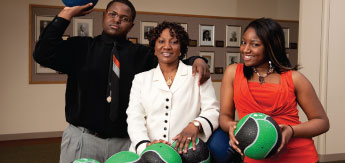We’ve recently learned that the Massachusetts Bay Transportation Authority (MBTA) is currently
discussing two fare hike proposals. These would increase fares by either 6.71 or 9.77 percent on average. This being said, the increase may be as high as 23 percent for certain passes. Such an increase would largely affect low-income residents and people of color, as the commuter rail fairs will not be increasing.
- Emailing public comments to the MBTA (fareproposal@mbta.com) now through February 12th.
- Signing the following petition.
- Sharing this information
- Attending one of the following public hearings:
- Monday February 1st at the State Transportation Building, Conference Rooms 1-3, (10 Park Plaza, Boston) from 10 am – 12 pm
- Tuesday February 2nd at the State Transportation Building, Library, (10 Park Plaza, Boston) from 5 – 7 pm.
- Wednesday February 10th at Roxbury Community College’s Media Arts Building, (1234 Columbus Ave, Roxbury) from 6 – 8 pm.
Read below for talking points to include in your email to the MBTA, as compiled by the
Intergovernmental Relations (IGR) Department of the City of Boston.
- I understand the need for increased revenue to support the T, but I am concerned that the proposed fare increases would impact riders that are least able to afford them.
- Under both proposals, bus and subway passes would increase in cost by a significant amount: student passes would rise by 23%, local bus passes would rise by 16-19%, and The Ride would rise between 5-10%.
- Meanwhile, fare and pass increases for those who ride the commuter rail would increase by 10% or less (in some cases 0% and in most cases by only 5%), and fares and passes for express bus service (service provided from suburban communities to the city) would drop by between 22% and 26.5%.
- These proposals would disproportionately impact low-income residents and people of color. T data shows that buses and The Ride are the most commonly chosen forms of public transportation for low-income individuals (those who make $30k/year or less). The bus is also the most commonly used form of transportation among Black residents – ridership data shows that 26% of T bus riders are Black, whereas only 10% of subway and 4% of commuter rail riders are Black. By contrast, 54% of commuter rail riders report income levels of $100,000/year or more and 87% of commuter rail passengers are White.
Check out BACH Director, David Aronstein’s T fare increase testimony.
For more information, download the Metropolitan Area Planning Council’s report.

